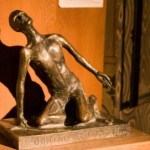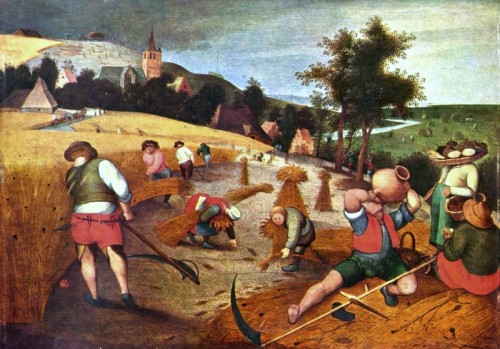 Commissioning the Seventy – the roots of the early church are in this story. The harvest is ready but the laborers are few, Jesus said, and sent them out to reap the world. Sending out this group, by twos and threes, to operate independently, was an organizational strategy of brilliance, in the learned opinion of New Testament scholar John Dominic Crossan. John the Baptist’s movement was ended with the single sword stroke that decapitated him, Crossan points out. Herod and Caesar had no trouble ending John’s power and dispersing his followers. But Jesus decentralized his movement, and became unstoppable.
Commissioning the Seventy – the roots of the early church are in this story. The harvest is ready but the laborers are few, Jesus said, and sent them out to reap the world. Sending out this group, by twos and threes, to operate independently, was an organizational strategy of brilliance, in the learned opinion of New Testament scholar John Dominic Crossan. John the Baptist’s movement was ended with the single sword stroke that decapitated him, Crossan points out. Herod and Caesar had no trouble ending John’s power and dispersing his followers. But Jesus decentralized his movement, and became unstoppable.
By the time Jesus was crucified Crossan estimates there were hundreds of commissioned ministers, scattered all over, in places of their own discernment. The news that Jesus was dead would have reached them slowly over weeks of time. And they would have responded by saying what the seventy said on their return from that first test run, in today’s reading, The blind see, the lame walk, the spirit is with us, Christ is alive. So there was no stopping Jesus’ movement. Pentecost will confirm this strategy, this model, and this unstoppability, in a huge crowd of people who will disperse all over the Mediterranean world.
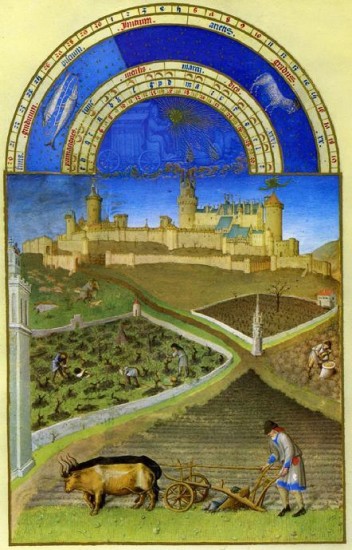 This is not easy joy. There is pain and anxiety in Jesus’ commissioning, and he crescendos into anger in the verses the lectionary omits, 12 – 16. He sends the seventy out in wariness: they are going as lambs in the midst of wolves, he says, and he warns them that they will not be welcomed everywhere. He instructs them to expect that and to be ready to move on. In the omitted verses he speaks damningly of several towns, Chorazin, Bethsaida, Capernaum.
This is not easy joy. There is pain and anxiety in Jesus’ commissioning, and he crescendos into anger in the verses the lectionary omits, 12 – 16. He sends the seventy out in wariness: they are going as lambs in the midst of wolves, he says, and he warns them that they will not be welcomed everywhere. He instructs them to expect that and to be ready to move on. In the omitted verses he speaks damningly of several towns, Chorazin, Bethsaida, Capernaum.
We know of his rejection in his home town, how they drove him from the synagogue and wanted to hurl him from the cliff, but he slipped away. We must assume similar rejections have taken place in these towns, and Jesus, stung by them, carries the hurt and disappointment still. Now he has set his face toward Jerusalem where he knows a sinister unwelcome awaits. And he says in his commissioning of the seventy, a poor welcome is possible everywhere, and will be mixed in with receptivity.
Perhaps the crucifixion story lures us into thinking the angry rejectors are not us. For we do cherish the illusion that, in the church, there is a green oasis of kindness and welcome, and outside the church the going gets tough. The crucifixion story tells us that outsiders, Caesar and his legions, Herod and his sychophants, political enemies of Jesus’ movement, were the rejectors. But Jesus, in the commissioning of the seventy, makes it clear that rejection is more intimate and more prevalent than most of us want to believe, that it happens intensely at home.
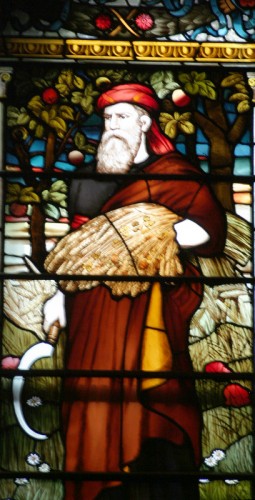 The seventy, giddy with the thrill of first endeavors, do not take his warnings to heart. They bring back their joy. With glee they recount their successes, saying demons submit to them. And Jesus tells them he has watched Satan fall from heaven (but he knows what awaits him in Jerusalem), and urges them not to rejoice in these experiences of power, but instead to hold as their joy that their names are written in heaven.
The seventy, giddy with the thrill of first endeavors, do not take his warnings to heart. They bring back their joy. With glee they recount their successes, saying demons submit to them. And Jesus tells them he has watched Satan fall from heaven (but he knows what awaits him in Jerusalem), and urges them not to rejoice in these experiences of power, but instead to hold as their joy that their names are written in heaven.
Like most of us, they go forth filled with a hope that it may all be joy. But there is a harvest of tears waiting in the world, and the seventy are sent for that, too.
Dietrich Bonhoeffer, who commissioned his students in the Underground Church to go forth into the Third Reich and proclaim the gospel while facing the possibility of death, made the distinction between cheap grace and costly grace, the grace which is truly from Christ. Cheap grace, he said, expects endless pleasantness, and is unwilling to confront powers and principalities. True grace knows the cross is part of life in Christ.
Frederick Buechner reminds us that Jesus horrified all Jericho by spending the night there not with the local rabbi or some prominent Pharisee but with Zaccheus, of all people, the crooked tax collector. And when Simon the Pharisee laid into him for letting a streetwalker dry his feet with her hair, Jesus said, “I tell you her sins, which are many, are forgiven, for she loved much.” It is no wonder that from the very start of his ministry the forces of Jewish morality and of Roman law were both out to get him . . . .
This past week the Supreme Court has overturned DOMA and restored same-gender marriage to California, and also overturned African American Voting Rights in a number of southern states, rights that have been hard-won after centuries of abuse. The deciding votes for overturning Voting Rights were those of devout Christians, some of them the same Christians who could indeed see the suffering of gays and lesbians in California, but could not see the suffering of poor black voters in Mississippi and Alabama. The articulate Ruth Bader Ginsberg, Jewish, a woman, widowed, afflicted with cancer, and in all these things rejected as unclean by some, could see clearly, and spoke with courage in her minority report.
Sadly, the loudest weepers over the rightful joy of same-gender couples are Christians, whose blindness to Jesus’ embrace of sexuality outside the rules seems to be permanent. Will these Christians work as hard to restore voting rights to African Americans as they have worked to deny marriage rights to gays?
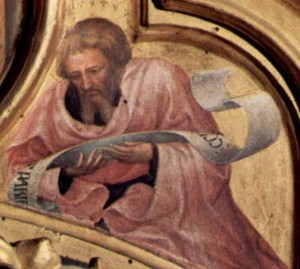 It is preaching that challenges morality that is as unwelcome now as it is welcome in this world. All of Jesus’ preaching was about this, about embracing those who are pushed aside and considered unworthy.
It is preaching that challenges morality that is as unwelcome now as it is welcome in this world. All of Jesus’ preaching was about this, about embracing those who are pushed aside and considered unworthy.
Isaiah’s work as prophet begins with hearing the question, Whom shall I send and who will go for me? Isaiah answers, Here am I, send me. Jesus began his ministry by reading Isaiah, and declaring that he has come to bring good news to the cast aside, the unclean, the reviled. He ends by becoming them.
Grace, he teaches, is for sinners. who are welcomed in the wisdom that love does not deride the beloved. And that their names are written in heaven.
__________________________________________________
Illustrations
1. Harvest. Abel Grimmer, 1607 Antwerp, Belgium.
Vanderbilt Divinity School Library, Art in the Christian Tradition.
2. Plow Marche. Limbourg Brothers. Tres Riche Heures. from Suzanne Guthrie’s blog, Edge of Enclosure.
3. Reaping. Stained Glass Window, Trinity Church, Boston, MA.
Vanderbilt Divinity School Library, Art in the Christian Tradition.
4. Isaiah. Gentile da Fabriano, 1423, Uffizi Gallery, Florence
Vanderbilt Divinity School Library, Art in the Christian Tradition.




